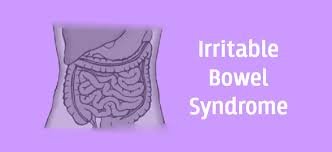Irritable Bowel Syndrome (IBS): Causes, Symptoms, and Treatment
Irritable Bowel Syndrome (IBS) is a common gastrointestinal disorder affecting millions of people worldwide. Characterized by a cluster of symptoms including abdominal pain, bloating, and changes in bowel habits, IBS can significantly impact an individual’s quality of life. In this comprehensive guide, we will delve into the causes, symptoms, diagnosis, and management strategies for IBS, as well as explore the role of lifestyle modifications and dietary changes in alleviating its symptoms.
What is Irritable Bowel Syndrome (IBS)? Irritable Bowel Syndrome, often abbreviated as IBS, is a chronic disorder of the large intestine (colon) that affects the functioning of the digestive system. While the exact cause of IBS remains unclear, it is believed to involve a combination of abnormal gastrointestinal motility, heightened sensitivity to visceral pain, and disturbances in the gut-brain axis. Factors such as genetics, diet, stress, and gut microbiota composition may also contribute to the development of IBS.
Symptoms of IBS: The symptoms of IBS can vary widely among individuals and may include:
- Abdominal pain or discomfort, which is often relieved by passing stool
- Bloating and distention of the abdomen
- Changes in bowel habits, such as diarrhea, constipation, or alternating episodes of both
- Urgency to have a bowel movement
- Mucus in the stool
- Feeling of incomplete evacuation after bowel movements
- Abdominal cramping, which may worsen after eating or during periods of stress
It is important to note that the severity and frequency of these symptoms can fluctuate over time, with some individuals experiencing periods of remission followed by flare-ups.
Diagnosis of IBS: Diagnosing IBS can be challenging due to the absence of specific biomarkers or diagnostic tests for the condition. Instead, healthcare providers rely on a combination of medical history, physical examination, and exclusion of other gastrointestinal disorders to make a diagnosis of IBS. Diagnostic criteria such as the Rome criteria and the Manning criteria are often used to classify IBS based on the pattern and duration of symptoms.
Management Strategies for IBS: While there is no cure for IBS, a variety of treatment options are available to help manage its symptoms and improve quality of life. These may include:
- Lifestyle Modifications: Adopting a healthy lifestyle can play a significant role in managing IBS symptoms. Regular exercise, stress reduction techniques such as yoga or meditation, and adequate sleep can help alleviate symptoms and improve overall well-being.
- Dietary Changes: Certain foods and beverages may trigger or exacerbate symptoms of IBS. Individuals with IBS may benefit from following a low-FODMAP diet, which involves reducing consumption of fermentable carbohydrates that can cause gas and bloating. Additionally, avoiding trigger foods such as dairy, gluten, caffeine, and spicy foods may help alleviate symptoms in some individuals.
- Medications: Over-the-counter and prescription medications may be recommended to manage specific symptoms of IBS. These may include antispasmodic agents to relieve abdominal cramping, laxatives or antidiarrheal medications to regulate bowel habits, and antidepressants or anti-anxiety medications to address mood disorders commonly associated with IBS.
- Behavioral Therapy: Cognitive-behavioral therapy (CBT) and gut-directed hypnotherapy have been shown to be effective in reducing symptoms of IBS by addressing psychological factors such as stress, anxiety, and negative thought patterns.
- Probiotics: Some studies suggest that probiotics, which are beneficial bacteria that promote gut health, may help alleviate symptoms of IBS by restoring balance to the gut microbiota. However, more research is needed to determine the specific strains and dosages that are most effective for IBS management.
Conclusion: Irritable Bowel Syndrome (IBS) is a complex gastrointestinal disorder that can have a significant impact on an individual’s quality of life. While the exact cause of IBS remains elusive, a combination of genetic, environmental, and psychosocial factors is thought to contribute to its development. By implementing lifestyle modifications, dietary changes, and appropriate medical interventions, individuals with IBS can effectively manage their symptoms and improve their overall well-being. It is important for healthcare providers to work closely with patients to develop personalized treatment plans tailored to their specific needs and preferences. Through ongoing research and clinical advancements, the management of IBS continues to evolve, offering hope for a better quality of life for those affected by this chronic condition.
Thanks for visiting Gymbag4u.com
You may also love reading our following articles. https://gymbag4u.com/digestive-health-a-comprehensive-guide-to-optimal-gut-function/ and https://gymbag4u.com/digestive-system-improvement-and-stomach-pain-remedy/ and https://gymbag4u.com/gi-tract-digestive-system-improvement-secrets/
